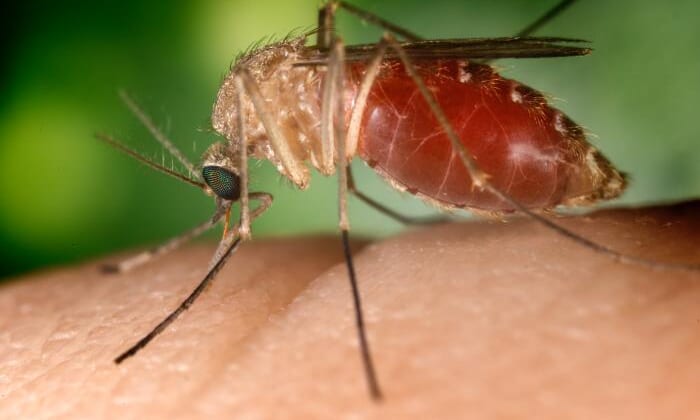Dealing with West Nile virus while pregnant

Summer is on the way and you know what that means: Sun, fun, barbecues and vacations!
But with all this crazy weather we’ve been seeing year after year in the U.S., it also means the potential for large numbers of mosquitoes.
With mosquitoes come those pesky bites, but also mosquito-borne diseases, like West Nile virus, that seem to become more prevalent each year. We seem more and more outbreaks of West Nile throughout the country each year, so it’s important to take steps to minimize your risk — especially if you’re pregnant.
West Nile is a virus is an infection transmitted to a human host by a mosquito when it bites you.
The typical incubation period ranges from 10-14 days, and the symptoms may appear flu-like and can include low-grade fever, body aches, headaches and swollen lymph nodes. Less than 1 percent of patients with West Nile virus will develop severe symptoms of encephalitis, which is an inflammation of the meninges, the protective covering of the brain – ultimately leading to neurological problems.
People most vulnerable to developing West Nile virus after a bite from an affected mosquito are the elderly, those with compromised immune systems, cancer patients and small children. While pregnant women are not at an increased risk of developing the disease, according to the Centers for Disease Control and Prevention (CDC), they can have unique complications if they do become infected.
For the most part, pregnant women bitten by a West Nile carrying mosquito will be able to fight off the disease quite effectively. However, if a pregnant woman does become infected, the presentation of the symptoms may lead to confusion with her OB-GYN. There are several medical reports which have studied clinical presentations of West Nile during pregnancy where some of the symptoms included muscle weakness and respiratory issues.
West Nile virus can also be transmitted to the fetus through placental circulation. And even though this is rare, there have been case reports of children being affected in utero causing a condition called bilateral chorioretinitis, which is an inflammation of the pigmented vascular coating of the eye. Cerebral abnormalities have also been reported, but again, the changes of maternal-fetal transmission are very low.
In some new mothers with onset of West Nile virus, transmission through breast milk is possible, but the risk is very low.
The bottom line is this: If you develop symptoms of what appears to be West Nile virus this summer, your doctors must consider it and test for it. Diagnosis can be made with a blood test, but prevention is key.
Be sure to keep your surroundings clear of debris and stagnant water, and try to use natural mosquito repellents to minimize potential exposure.
